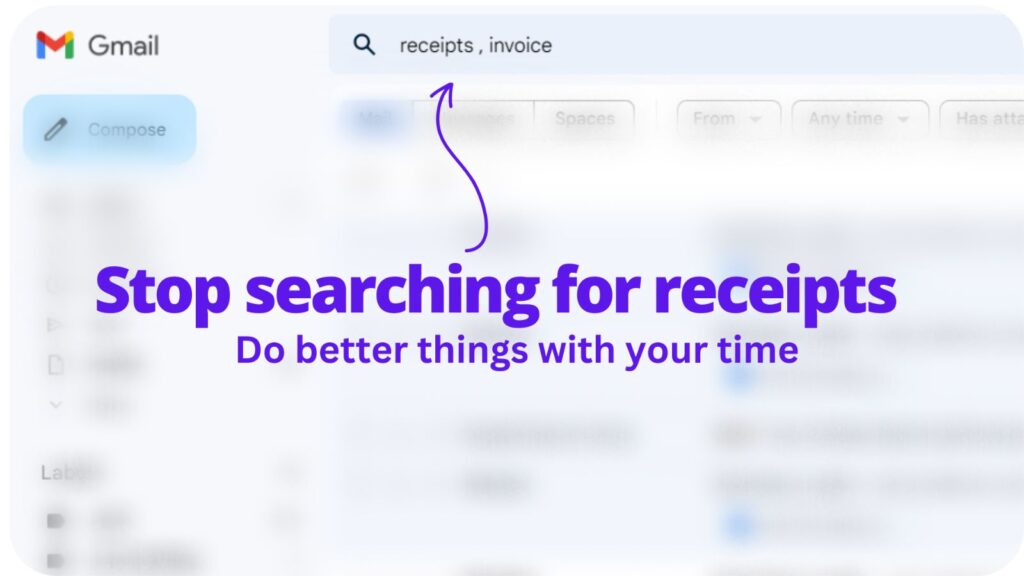As a 1099 independent contractor, understanding your tax obligations is crucial to maintaining financial stability and compliance. Many independent contractors often find the tax landscape complex and challenging to navigate.
This article will serve as your guide, shedding light on the key tax deductions and write-offs that you, as a 1099 contractor, are entitled to.
From home office expenses to vehicle usage, we’ll dive into a wide range of potential deductions that can significantly reduce your taxable income, ensuring that you’re paying only your fair share to the IRS.
Understanding the Independent Contractor Tax Landscape
Who is an Independent Contractor?
An independent contractor is someone who decides how they do their work. They pick their work hours and the tools they use. They might be a graphic designer who works for many clients at once. The place they work can be their home office or even a coffee shop.
They choose their projects and set their rates. More importantly, they navigate the unique challenges of independent contractor tax, handling their own business expenses and tax filings. They pay taxes on their business income. They need to track their self employment income and business expenses. This might seem tough.
Tax Responsibilities for Independent Contractors
The independent contractor tax bill is different from that of employees. They have to pay self employment tax. This tax is for Social Security and Medicare. The good part is, half of this tax can be a self employment tax deduction.
Independent contractors also need to pay income tax. Based on how much you earn the income tax rate changes. It can be from 10% to 37% of your taxable income. So, it’s key to keep track of all your earnings.
As an independent contractor, no one takes out your taxes for you. So, you need to set money aside for taxes. You might need to make estimated tax payments during the year. Keeping track of your income and expenses helps you be ready for tax time.
Key Deductions for Independent Contractor Tax Savings

Basics of Tax Deductions
Tax deductions are costs that you can remove from your taxable income. This can help to lower your tax bill. For instance, if you make 50K but have 10K in deductions, you only pay taxes on 40K.
There are many types of tax deductions. Common one for independent contractor include business expenses and self employment tax deductions. Business expenses can be any costs that you need to run your business. This can include home office costs or business insurance premiums.
Self employment taxes can also be high. But, there is a self employment tax deduction. This lets you write off a part of these taxes. There’s also the qualified business income deduction. If you make less than a certain amount. it can lower your tax bill.
The Importance of Keeping Accurate Records
When considering independent contractor tax, maintaining accurate records for all deductions becomes paramount. You need to show proof of your costs if the IRS asks. For example, if you use the actual expense method for your home office, you need to show all costs. This can include mortgage interest and property taxes.
In the digital age, many independent contractors have turned to solutions such as a receipt tracker app to keep all their receipts organized and readily available.
Self-employed receipt management is crucial in today’s fast-paced environment. Keeping track of your business income is just as vital. The IRS may want to see this too.
Keep track of all payments from clients. Also, save any 1099 forms that you get. These show how much you made from each client.
You should also keep a record of all business meals and travel expenses. Save all receipts. Make a note of the business purpose of each cost. This can help to prove that the cost was a real business expense.
Remember, for specialized insights on independent contractor tax, consulting a tax professional is always advisable. They can help to make sure that you’re doing everything right. They can also help to find more tax deductions that you can use.
Home Office Expenses for an Independent Contractor

Criteria for Home Office Deductions
Firstly, the IRS has set rules for home office deductions. You need to use your home office only for business purposes. Secondly, your home office should be your place for work.
You may get a deduction, if you use a part of your home only for work. For example, you might use a spare room as your office. Or, you might use a part of your living room for your work. Both are fine for the IRS.
But remember, you can’t use that space for personal purpose. If you use it for personal things too, you can’t get the deduction. So, keep your office space only for work.
Calculating Your Home Office Deductions
Now, how do you work out your home office deductions? You have two choices. You can use the simplified method or the actual expense method.
The simplified method is easy. You just take $5 off for each square foot of your office space. You can do this for up to 300 square feet. So, you can get up to $1,500 off your taxable income.
The actual expense method is a bit harder. You need to work out the exact costs of your office space. This can include mortgage interest, property taxes, and insurance. You then take off a percentage of these costs from your income.
The percentage is based on the size of your office space compared to your whole home.
Which method is best? It depends. If your home costs are high, the actual expense method might save you more. But, the simplified method is easier. It’s best to ask a tax professional for advice.
Vehicle Usage for Independent Contractor Tax Deductions

Maintaining a Mileage Log for Deductions
Keeping a mileage log is important. It records how much you use your car for business purposes. This can help you to claim car expenses on your tax return.
In your mileage log, note down the date and purpose of each trip. Also, write down the miles you traveled. Keep this record for all business trips. This includes trips to meet clients, or to buy office supplies.
Also, write down the total miles you drive each year. This includes both personal use and business use. It’s best to keep a detailed log. This can help you to give accurate information to the Internal Revenue Service (IRS).
Understanding Actual Expenses vs. Standard Mileage Deduction
There are two ways to work out your car expenses. These are the actual expenses method and the standard mileage deduction. Choose the one that gives you the biggest tax write off.
With the actual expenses method, you can claim costs like gas, repairs, and insurance. But, you must work out the business portion of these costs. For example, if 50% of your mileage is for business, you can claim 50% of these costs.
The standard mileage deduction is simpler. In 2021, the IRS set the rate at 56 cents per business mile. But, the rate can change each year. You can’t claim other car expenses if you use this method.
Both independent contractor tax deduction methods can be beneficial. However, each requires different types of record-keeping. For the actual expenses method, keep receipts for all car expenses. For the standard mileage deduction, keep a detailed mileage log.
Supplies and Equipment: Major Independent Contractor Expenses
Running a business needs supplies and equipment. These things cost money. You can often write off these business expenses on your tax return and that is the good news. This helps to lower your tax bill.
Writing Off Business Supplies
Supplies used for your business are tax deductible. These might be things like pens, paper, or computer software. If you buy these for your business, you can write them off.
Keep your receipts when you buy supplies. Then, add up the costs at tax time. Write this total on your tax return to claim your deduction.
Not sure what counts as a supply? Here’s a simple rule. If you use it up in less than a year, it’s probably a supply. For example, printer ink is a supply. You use it up when you print.
Understanding Depreciation of Business Equipment
Equipment is different from supplies. Examples of equipment include computers, furniture, or machines. You can write off the cost of these too. But, you usually do this over several years. This is called depreciation.
Depreciation spreads the cost of equipment over its useful life. For instance, if you buy a computer for your business, you might write off its cost over five years. You can do this even if you paid for it all at once.
Remember to only write off the business use of your equipment. If you use your computer half the time for business, you can write off half of its cost.
Depreciation can be tricky. A tax advisor can help you get it right. They know the rules and can make sure you get all your tax deductions. This can save you money on your self-employment tax.
Professional Services and their Role in an Independent Contractor’s Expenses

Deducting Legal and Professional Services
Maybe you hire a lawyer to help with contracts. Or an accountant to handle your taxes. Their fees are a business expense. So, you can write them off.
Remember to keep a record of these costs. A receipt or invoice will work. This is your proof if the IRS asks. So, keep your records safe.
Writing off professional fees helps lower your taxable income. This means you’ll pay less in self-employment taxes. And that means more money stays in your pocket.
Writing Off Advertising and Marketing Costs
Getting the word out about your business is important. This might mean paying for ads online. Or printing brochures. Or even hiring a marketing company or a freelancer. These costs are also a business expense. So, you can write them off.
Just like with professional fees, keep a record of these costs. This will make it easy to claim these deductions at tax time. And you’ll have proof if the IRS asks.
Every dollar you write off saves you money on your taxes. So, take the time to track your advertising costs.
Travel Expenses and Their Impact on Independent Contractor Tax

How to Deduct Business Travel Expenses
When you travel for business, you can write off some costs. This includes things like airfare, hotel bills, and meals. But, the trip must be mainly for business.
You have to keep track of your expenses. Keep your receipts and make notes about your business activities. You’ll need these when it’s time to do your taxes.
By writing off your travel expenses, you lower your taxable income. This means you’ll owe less in self-employment taxes.
Navigating the Intersection of Personal and Business Travel
Sometimes, you might mix business and personal travel. For instance, you might take a day off to sightsee during a business trip. But, can you still write off your expenses? The answer is, it depends.
If the trip is mainly for business, you can write off your travel costs. But, you can’t write off costs for your day off. Like your meal costs or sightseeing tickets. And, you have to prove the trip was mainly for business. That’s why keeping records is so important.
FAQs
Can a 1099 independent contractor deduct educational expenses?
Yes, contractors can often deduct educational expenses related to their work. This can include training courses or certifications. It can also include business books or subscriptions. However, the IRS has specific rules for what counts as an educational expense. It’s always best to check with a tax professional.
How can 1099 independent contractors manage their startup costs for tax purposes?
Contractors can often deduct startup costs. This can include the costs to set up your business, like business licenses. But, the IRS has rules about how to claim these costs. Generally, you can deduct up to some sum in the first year. The rest of the costs you have to spread out over several years.
Is it possible to deduct health insurance costs for a 1099 contractor?
Yes, self-employed workers can often deduct health insurance costs. Premiums for medical, dental, and long-term care insurance can be included. But, the insurance plan must be under your business name. Also, if you’re eligible for other health coverage you can’t take the deduction.
What is the impact of personal use of business assets on deductions?
If you use business assets for personal use, it can limit your deductions. For example, if you use your home office or car for personal things too, you can only deduct the business part. You’ll need to keep good records to show the business use.
Conclusion
In conclusion, managing taxes as a 1099 independent contractor can be complex but feasible. Utilizing resources like expense tracking for independent contractors can simplify the process and ensure accuracy.
Many expenses related to your work are potentially tax-deductible. These include your health insurance premiums, startup costs, educational expenses, and the business use of assets.
However, keep a detailed record of these expenses to support your claims in the realm of independent contractor tax. A tax professional can provide comprehensive tax advice specific to your situation, and you should always consult them.

Collect receipts from your email automatically!
Try WellyBox - your AI assistant for receipts


